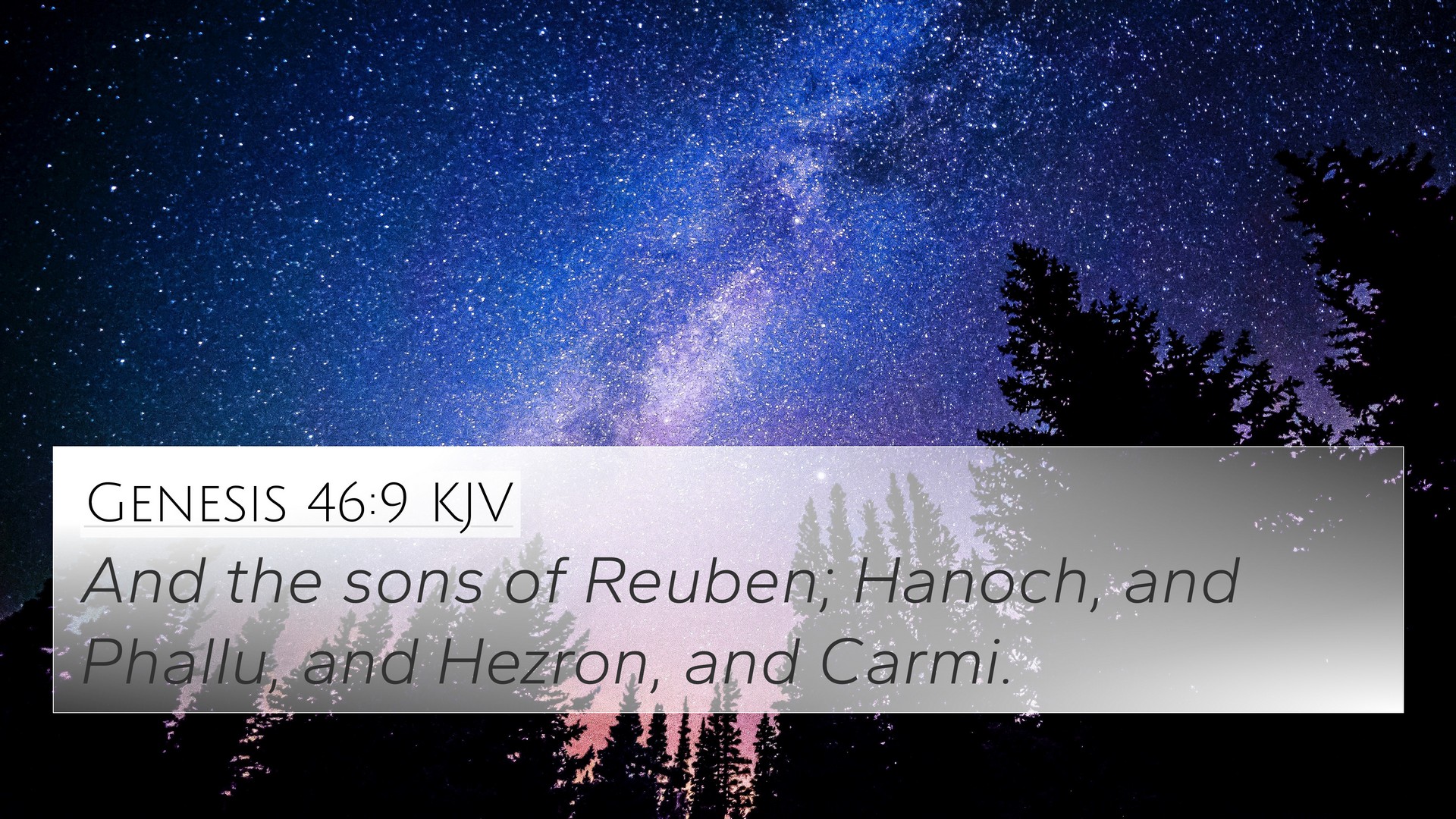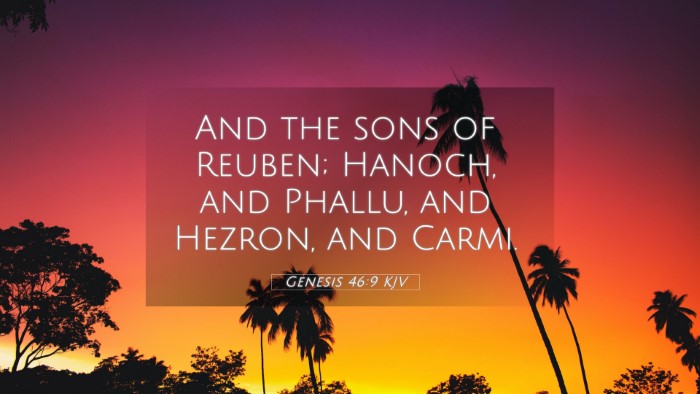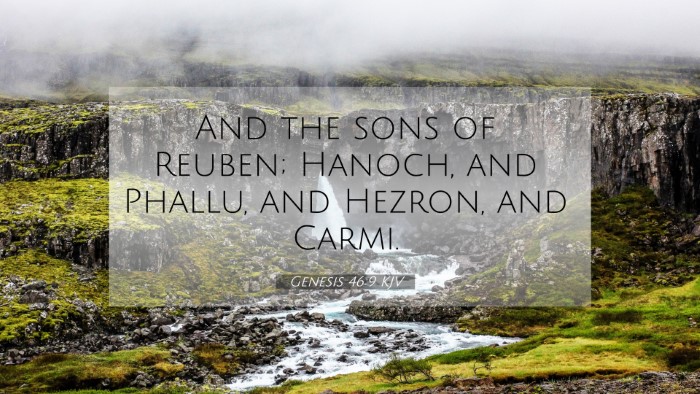Understanding Genesis 46:9
Genesis 46:9 states, "And the sons of Jacob, which went into Egypt, were Reuben, Jacob's firstborn." This verse serves as a significant moment in the narrative of the Israelites, capturing the transition of Jacob's family into Egypt where they would experience a change in their destiny.
Contextual Background
In the broader narrative, Jacob's migration to Egypt marks a pivotal point in the history of Israel. It not only introduces the audience to the genealogy of Jacob's sons but also sets the stage for the events leading to the Israelites' eventual Exodus. Understanding this verse involves exploring several layers of meaning:
Insights from Public Domain Commentaries
Matthew Henry's Commentary
Matthew Henry highlights the importance of this listing of Jacob's sons as it reinforces the significance of family lineage in the biblical narrative. The inclusion of Reuben, being the firstborn, emphasizes the themes of birthright and leadership within the family.
Albert Barnes' Notes
Albert Barnes explains that this verse acts as a precursor to the chapters that follow, detailing the development and growth of the Israelite nation in Egypt. He notes that this enumeration is not merely for historical accuracy but serves to remind the readers of God’s promises concerning Abraham, Isaac, and Jacob and their descendants.
Adam Clarke's Commentary
Adam Clarke emphasizes the organizational aspect of the verse, noting how it reflects the systematic way genealogies were kept in the Old Testament. He draws attention to the role of each of Jacob's sons, suggesting that each will play a part in the unfolding narrative of Israel's history.
Bible Cross-References
This verse connects with numerous other scriptures that highlight themes of lineage, prosperity, and God's promises to His people. Below are cross-references that illuminate the meaning of Genesis 46:9:
- Genesis 29:32 - Discusses the birth of Reuben, signifying his significance as Jacob's firstborn.
- Exodus 1:1-5 - Lists the individuals who entered Egypt with Jacob, connecting directly to this verse.
- 1 Chronicles 5:1 - Highlights the birthright of Reuben and its subsequent forfeiture.
- Romans 9:4-5 - Reflects on the glory, covenants, and promises made to the patriarchs.
- Matthew 1:2-3 - The genealogy of Jesus Christ, which traces His lineage back to Abraham through Jacob.
- Hebrews 11:21 - Mentions Jacob's faith in blessing the sons of Joseph, linking the narratives of lineage and faith.
- Revelation 7:5-8 - Details the sealed tribes of Israel, reflecting the importance of these names throughout biblical history.
Thematic Connections
The verse intricately weaves into the larger narrative of the Bible, reflecting on God's covenant with Israel. Key themes include:
- Divine Providence: God's hand guiding the family of Jacob into Egypt for protection and growth.
- Identity and Heritage: The significance of family in Israel's identity and their journey as God’s chosen people.
- Fulfillment of Promises: Recalling God's promises to the forefathers, that their descendants would be numerous and blessed.
In Conclusion
Genesis 46:9 provides a foundational understanding of Jacob's family and their journey into Egypt. By utilizing thematic connections and cross-referencing with other biblical texts, readers can appreciate how each verse ties together in the larger tapestry of scripture, illuminating God's redemptive plan.
Further Study and Tools
For those interested in a deeper understanding of Bible cross-referencing, several tools and methods can be employed:
- Bible Concordance: A reference tool that helps locate verses based on keywords or phrases.
- Cross-Reference Bible Study: Techniques for comparing different passages to explore their relationships.
- Bible Cross-Reference Guide: A comprehensive reference that assists in identifying interconnecting themes across scriptures.
- Bible Chain References: A method that links scripture verses to show their scriptural context and relevance.
Understanding Genesis 46:9 and its related verses aids in appreciating the continuity and depth of biblical narratives, encouraging a richer engagement with the Word of God.


